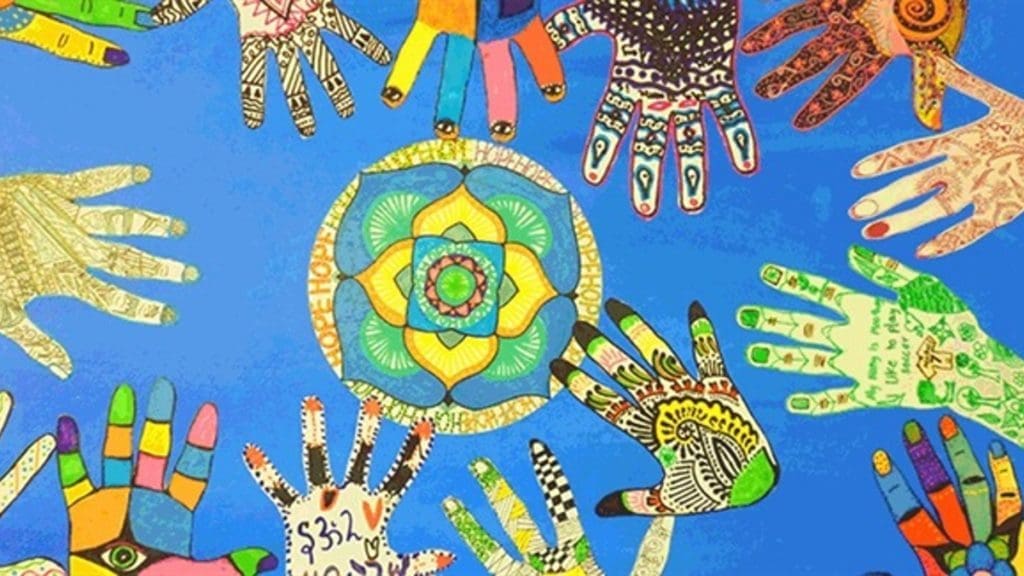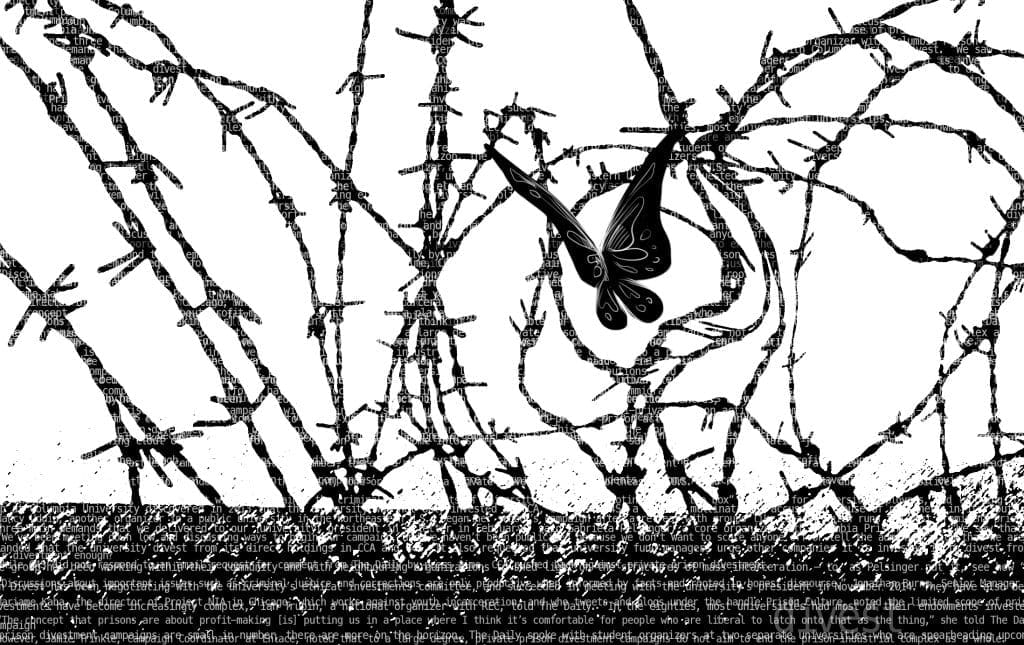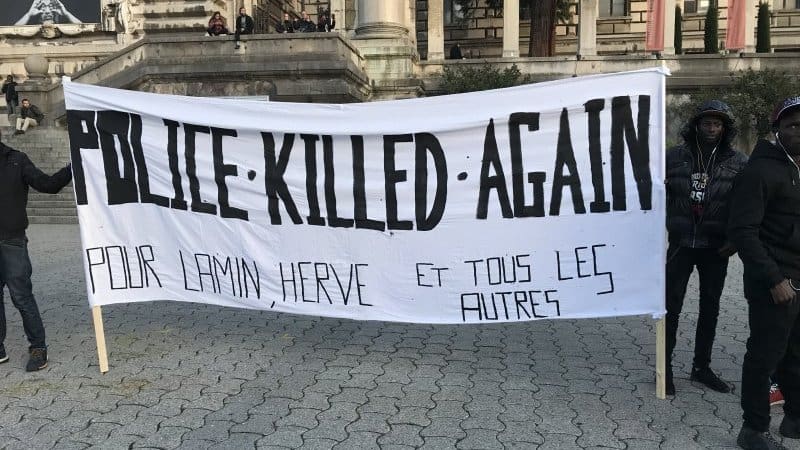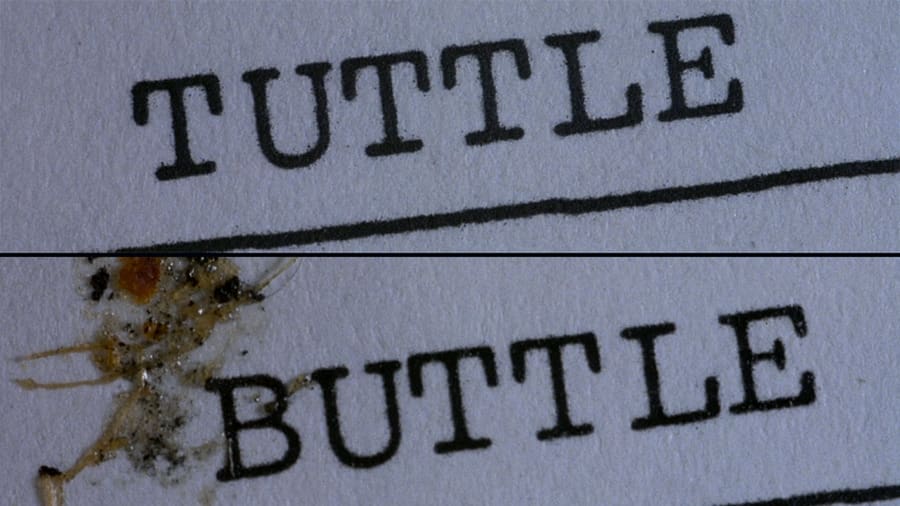Transcribed from the 2 December 2019 episode of This is Hell! Radio (Chicago) and printed with permission. Edited for space and readability. Listen to the whole interview:
What it meant to be a progressive at the beginning of the twentieth century was to believe that waystations on the train toward now, toward progress, towards civilization, could be accelerated if you had enough missionaries, enough education, enough public hygiene programs. Essentially the story of human progress was a straight line leading from benighted to civilized.
Chuck Mertz: There was a time when everybody “knew” that race, ethnicity, and gender determined everything about who you are. Frighteningly, it wasn’t that long ago. Here to guide us through how what everyone believed turned out to be a fiction, award winning writer Charles King is author of Gods of the Upper Air: How a Circle of Renegade Anthropologists Reinvented Race, Sex, and Gender in the Twentieth Century.
Welcome to This is Hell!, Charles.
Charles King: So nice to be with you.
CM: There’s a very uplifting quote at the beginning of your book, attributed to the physicist Max Planck, saying, “A new scientific truth does not triumph by convincing its opponents and making them see the light, but rather because its opponents eventually die and a new generation grows up that is familiar with it.”
Do old ideas have to die off? And if seeing the light doesn’t change our minds, what does that say about us?
CK: It says that we are prisoners, in a way, to a set of visions of the world, concepts that we bring into the world, boxes and categories that we use to make sense of the world, and every society of which we have knowledge has its own unique boxes, concepts, obsessions—in a way, its own common sense. Gods of the Upper Air is the story of how—at least in the United States, and to a degree around the world—we began to have a different conception of what common sense is, particularly around these deep-seated ideas like race and gender, sexuality, ethnicity.
CM: You write about the anthropologist Franz Boas, who lived from the mid-nineteenth to the mid-twentieth century. He was the chair of anthropology at Columbia University and he challenged the belief that nearly everybody held only a century ago that race, sex, and nationality determined who you are. Boas even argued race is a fiction, which was revolutionary for the time. And this is before any of his students had done any fieldwork.
Why did Boas have such a departure from what was universally known? Why did he believe that race was a fiction and that nationality, sex, and race didn’t determine who we are, without having done the fieldwork to prove it yet?
CK: Boas was one of those figures who comes along rarely, who is able to see more clearly, think more broadly than the rest of us. He had grown up in Germany, emigrated to the United States in the 1880s, and just before he emigrated he had begun his own amateurish fieldwork—we would now call it anthropological fieldwork even though that word wasn’t around at the time. He had done a degree in physics but really wanted to be a world explorer, go around the world and have adventures.
He spent nearly two years living on Baffin Island in the Canadian Arctic, along with a guide and assistant of his, recording local languages, hunting with local Inuit populations, making maps of the region. Over that period of time he had something of a transformation. He was highly educated, the graduate of some of Germany’s best research universities; he knew how to make his way in the world. In a way, he was part of the country’s intellectual elite—but on Baffin Island he was a child. He was stupid. He couldn’t speak properly. He didn’t know what would help him survive in the winter. He didn’t even know how to harness a dog team—basic things that any fully educated human being in that environment would take as a given, as common sense.
That began for Boas a process of rethinking the obvious, rethinking what common sense actually meant. He would eventually take that insight and wrap it into his scientific understanding of race, along with lots of other things that obsessed the new society he came into in the 1880s, the United States.
CM: And you write about one of his students in your book, Margaret Meade. You write of Meade: “It didn’t take her long to conclude that Samoa seemed to have few rebellious adolescents. But that was largely because there was little for them to rebel against. Sexual norms were fluid. Virginity was celebrated in theory but underprized in practice. Strict fidelity in relationships was foreign. Samoan ways, Meade reported, were not so much primitive and backward as intensely modern.”
So, prior to Meade in Samoa, and prior to Boas doing the work in the Baffin Island area, was not doing fieldwork an intentional way to uphold what were commonly held beliefs, as to (in this case) who acts primitively and who is ‘modern’? Were scholars simply coming up with these concepts without any fieldwork to back up what their cultural beliefs were?
CK: Certainly there were adventurers and travelers who had gone around the world for centuries, carting back artifacts and objects and pieces of art to fill up museums in Western Europe, the United States, and elsewhere. But they carried with them a preset theory about human social change. It was a theory that you would see on display in any natural history museum in Paris, London, Washington, Chicago, or elsewhere. You would learn about it in geography classes; you would learn about it in what was already at the beginning of the twentieth century being called sociology and anthropology.
The theory was essentially this: “civilized” societies, represented primarily by Western Europe, the United States, and a handful of other countries around the world, were the endpoint of some linear path of social evolution. They had the science, they had the technology, they had the most “modern” mindset imaginable; they represented progress.
If you looked at societies different from those, you were essentially engaging in a bit of time travel, looking at a so-called “primitive” society; you were gazing back at an earlier version of yourself—an earlier version of your religion, your language, or your mental map of the world. Natural history museums and geography classes were there to teach you how Western Europeans, Americans, and other people who were always classed as ‘white’ in these models happened to become so civilized.
What it meant to be a “progressive” at the beginning of the twentieth century was to believe that waystations on the train toward now, toward progress, towards civilization, could be accelerated if you had enough missionaries, enough education, enough public hygiene programs. Essentially the story of human progress was a straight line leading from benighted to civilized.
Issues of race and of exclusion along different measures and categories are not dark chapters in the American story as we sometimes say: they are a constant thread in definitions of what American society is and who counts in American public life.
CM: Your book is about “the women and men who found themselves on the front lines of the greatest moral battle of our time: the struggle to prove that despite differences of skin color, gender, ability, or custom, humanity is one undivided thing. It has a prehistory of the the seismic social changes of the last one hundred years, from women’s suffrage and the civil rights movement to the sexual revolution and marriage equality, as well as of the forces that push in the opposite direction, towards chauvinism and bigotry.”
Are our dividing lines, then, still over what was discovered by Meade and others like her? Are our politics still in conflict over their discoveries when it comes to humanity being one undivided humanity?
CK: When I was first thinking about this book project and beginning to do some of the research and writing, around 2014-2015, it felt like I was going to write a history of how we had all become so enlightened. Marriage equality had just become the law of the land in the US; we were in a moment where it looked like the United States was moving forward—at least to my naive eyes at the time.
Then, of course, 2016 happened. What I realized in this moment was that Boas and Margaret Meade and other students of his—Ruth Benedict, Zora Neale Hurston—were fighting battles that are perennial in the history of United States. Issues of race and of exclusion along different measures and categories are not dark chapters in the American story as we sometimes say: they are a constant thread in definitions of what American society is and who counts in American public life.
The idea that human beings are one thing, that we are not fundamentally divided into categories that seemed obvious to people in Western Europe and the United States a century ago—that idea runs through some of the world’s great religions and great ethical systems. The difference that Boas and his students brought to this debate was that they saw the essential unity of humans as not just a matter of ethics, morality, or philosophy, but of science.
You demonstrate it scientifically by getting out of your house, going to some place that is very different from places that are familiar to you, and asking how people make sense of their lives in that place. Ask what it means to be an intelligent person in the place. Ask what it means to be a full adult in that place. Ask how the gods prefer to be named, or what’s good to eat, or how you die properly, or what it means to marry well. Boas said these are the unifying questions that encircle all of humanity. Every society of which we have knowledge has answers to these same basic questions.
We shouldn’t believe that our answers to these questions, here and now, are the only obvious, timeless, forever ones—or, for that matter, the only ones that produce human fulfillment.
CM: Did Boas, then, take the politics out of science? You write, “This is not a book about politics, ethics, or theology; it is not a lesson in tolerance. It is instead a story about science and scientists.”
This is not to say that the science or the scientists were not affected by politics, ethics, or theology. But were they any more or less guided by politics, ethics, or theology than their predecessors?
CK: Boas believed that the politics of morality, your ethical system, should be based on what is scientifically demonstrable. His beef with the eugenicists, the racists, and the organization of museums in his day wasn’t just that they represented this divisive hierarchical vision of global society (although they certainly did represent that). His basic objection was that they were scientifically inaccurate: they were simply wrong. There is no evidence for the belief that “we” are the endpoint of human social evolution. There is no evidence for the idea that having one god is superior to having many gods, that monotheism was somehow a “step forward” in human social thinking.
What he wanted to do was organize our understanding of other societies, other times, and other places such that we present the coherent worldview that animated those times and places—and then try to understand those times and places, and the people who inhabited them, on their own terms.
The morality and politics that flow from that are pretty obvious. If you can’t set yourself up as always and forever the best, always and forever the boss, always and forever the natural terminus of human social change, then you ought to be a little bit more skeptical about theories that claim that—and about basing your immigration policy on theories that claim that, basing your political system on excluding a set of people from public life.
Boas said these things are immoral because they are scientifically wrong, and better education, he believed, would change that.
CM: You write, “A little over a century ago, any educated person knew that the world worked in certain obvious ways. Humans were individuals, but each was also representative of a specific type, itself a summation of a distinct set of racial, national, and sexual characteristics. Each type was fated to be more or less intelligent or idle, rule-bound or warlike.”
To what extent were these beliefs driven not by science but by capitalism? Do we have these beliefs because this was the best way to create economic classes and differentiate labor, organizing society to best work within the parameters of earning profits and making money? Was that part of the reason?
CK: Yes, in the sense that these ideas came to fruition in a globe-spanning imperial capitalist moment. And certainly it’s true that these particular categorizations of race, gender, sexuality, you name it—the hierarchy built into each of these ways of conceiving the world—lasted because they served certain purposes. They served the purpose of justifying and maintaining a certain set of power relationships in all of these societies. But Boas and his students understood that even that isn’t unique. In every society of which we have knowledge, people have a tendency to take their own ways of seeing the world, their own ways of categorizing the world and mentally mapping the world, and see those as natural, timeless, and common-sensical.
A really scientific mindset, or for Boas’s students—an anthropological mindset—was to cast yourself out of that sense of naturalness in your own society, and begin to see the world from the position of the gods of the upper air, as Zora Neale Hurston said, in order to understand your own condition and your own circumstances as only one of a number of different ways of conceiving the world.
Boas, Meade, Benedict, Hurston, and others whom I deal with in this book saw themselves as battling the idea that there is something special about people who happen to look, sound, sing, or eat exactly like you. In fact there’s nothing particularly special about the things that you happen to hold dear.
CM: You write, “At the time, no sovereign country permitted women both to vote and to hold national office. In the United States, censuses divided society into clear and exclusive racial types, including White, Negro, Chinese, and American Indian. The 1890 census added the terms mulatto, quadroon, and octoroon to distinguish different shades of the “Colored.” Your proper category was so obvious that it was not what you said it was, but what someone else (the census enumerator, usually a white man) said it was.”
Does this increased categorization and specification reflect—at least in the eyes of those who saw themselves as forward-thinking at the time—the post-slavery enlightenment that they believed they were promoting? Did more categories, at least to them, mean they were being more respectful and understanding of differences and not what we today might consider racist?
CK: No. This is why, by the way, it’s very difficult to make statements about race in the United States over long periods of time based on the US census, because the census categories change. You have to make this interpretive leap to say, well, the thing that was identified as category X in one census but category Y in another census is really the same thing. That’s a great interpretive leap.
When Boas looked at the US census, or for that matter any other way of categorizing human beings, he saw within those categories a kind of genealogy of power. People were typically categorized by the powerful in any given society. Those categories didn’t rise up organically and then find their ways into government metrics and ways of categorizing human beings. Once the modern state got in the business of categorizing people in these ways, it had an interest in maintaining those categories. It had an interest in using those categories for particular purposes.
That, for Boas and his students, was the difference between technological societies (what were at the time called “modern” societies) and other societies that they studied around the world. All the societies of which they had knowledge categorized people. That would seem to be a human universal. The difference in the United States in the early twentieth century was categorizing people in ways that seemed immutable (you couldn’t change it from time to time), inheritable (you pass down your race magically to your children), and in ways that circumscribe your social power for the entirety of your life.
Finally, Western Europe, the United States, and some other societies rooted these ways of seeing in what they claimed to be “modern science.” The greatest scientists, explorers, geographers, and early anthropologists of Boas’s day believed deeply that what they were doing in support of eugenics and what we now recognize as scientific racism was, well, scientific. Boas’s greatest contribution was to turn all of that on its head, and teach his students that in fact science pointed in the exact opposite direction, toward the essential unity of human beings.
CM: You write, “We usually narrate changes [in identification] as an expansion or a contraction of our moral universe. In the United States, the political left tends to trace a long, necessary arc from the dismantling of racial authoritarianism in the era of Jim Crow through the Stonewall riots and the Americans with Disabilities Act towards the first major female candidate for US president. The narrative is one of progress, of an ever greater fulfillment of the rights enshrined in the nation’s founding documents.”
Is progress viewed as inevitable and unavoidable by the left in the US because the founding documents, the most significant documents defining the United States, promise us a progressivism that we still have yet to experience?
CK: There are two versions of America that are braided together from the very founding: a set of documents that are written in a kind of universalizing Enlightenment-era language while at the same time containing other language and being written by people who claim to own other human beings and who saw this categorization and hierarchy as being natural, god-given, and timeless.
These two realities of the United States are braided together in the country’s history, and from time to time one or another of those threads comes closer to the surface. We happen to be living in a moment where, between the political left and the political right, there is a very clear distinction on many of these fundamental issues. People will use the word “nationalist” to describe themselves and their view of the United States, and are very clear that means privileging a particular racial, genealogical, or cultural strand in the United States over all others and then altering immigration law, altering the teaching of American history, and altering the American narrative to fit that story.
All of that would have been familiar to Boas, Meade, Benedict, Hurston, and others whom I deal with in this book. They saw themselves as battling exactly the same thing: the idea that there is something special about people who happen to look, sound, sing, or eat exactly like you, when in fact there’s nothing particularly special about the things that you happen to hold dear. All you need to do is walk out your front door, experience the world, throw yourself into a place where you’re not the boss, and then begin to create your theory of human society.
I have to say, this is why it is so critical that these people were outsiders in their own time: Boas, a German-Jewish immigrant to the United States who had found himself on the wrong side of the First World War; Zora Neale Hurston, the only African-American student at Barnard college when when she was a student there, had grown up in Jim Crow Florida; Meade and Benedict engaged in a loving lifelong relationship that at the time they couldn’t name. They themselves were outsiders in their own society, and as a result were able to see its pitfalls, foibles, weirdnesses, and horrors all the more clearly.
CM: You write, “For each of them [in the Boas circle], fame, if it ever arrived, was edged with infamy. Their careers became bywords for licentiousness and crudity, or for the batty idea that Americans might not have created the greatest country that has ever existed. They were dismissed from jobs, monitored by the FBI, and hounded in the press, all for making the simple suggestion that the only scientific way to study human societies was to treat them all as parts of one undivided humanity.”
What does it say about the United States, to you, when its national law enforcement service is pursuing those who believed in equality as if they were criminals—as if demanding the unfulfilled promise of the constitution is a criminal act?
CK: I think Boas and students of his would say that the United States is therefore a country like many others. “Dangerous” ideas that seem to undermine social stability or political power are always going to be contested and battled against by states that have an interest in maintaining the power that those ideas undergird.
Boas was arguing for the essential unity of human beings and the nonsensical-ness of scientific racism and the crazy ideas of eugenics that were in place at the time. He was a very public, outspoken critic of these ideas at precisely the time that they were wrapping themselves into the institutions of government in his old homeland, Germany. Boas died in 1942. He died at the height of Nazi power in Germany, when the ideas of race and eugenics and forced sterilization were becoming the law of the land, and right at the beginning of what would become the Holocaust.
It is scientifically observable that there simply is no such thing as “racial purity.” There is simply no such thing as an unsullied, pure nation.
But Boas also understood that many of the ideas the Nazis were putting in place in Germany rested on an experience and a scientific foundation (and, for that matter, a body of law) that was already well in place in the United States. As a number of historians have written over the last several years, the Nazis were actively studying the American model through the late twenties and into the 1930s, because at the time the United States had the most far-reaching system of racial classification and exclusion in the world. The Nazis had only to substitute the category Jewish for the category African-American. The United States had forcibly sterilized more people than any country in the world by the time the Nazis came to power. A supreme court case had justified the forced sterilization of those deemed by the state to be “feeble-minded.”
Boas was able to see what a full-blown version of racial exclusion and state control of human beings looked like from the American example, and then to see in his old homeland what a version of those laws and practices would look like if they were taken to an unimaginable extreme.
The Nazis drew their ideas about the world from a variety of different sources, of course. In Mein Kampf, Adolf Hitler says quite explicitly that no country in the world really gets race and immigration, “social hygiene,” right—but that the country that comes closest is the United States. Hitler had read German translations of many of the great eugenicists and racial theorists in the United States of the day. One of those was a volume from 1916 by a guy named Madison Grant, called The Passing of the Great Race. Grant was friend of Teddy Roosevelt, founder of the Bronx Zoo, a great environmentalist, and at the time a Progressive voice. Hitler called it his “bible” because Grant gave such a racialized treatment of American history and world history.
CM: You write, “The valuing of purity—of unsullied race, a chaste body, a nation that sprang fully formed from its ancestral soil—should give way to the view, validated by observation, that mixing is the natural state of the world.”
Why is mixing the natural state of the world, and how has that been validated by observation? Why is mixing better?
CK: I don’t know that it’s “better” or that Boas or his students would have used words like “better” or “worse.” They would say it is scientifically observable that there simply is no such thing as “racial purity.” There is simply no such thing as an unsullied, pure nation. These become obsessions of particular societies—in fact, lots of different religious traditions have concepts of what purity means and what pollution means. That seems to be a human universal. But what counts as “pure” and “polluted” differs from time to time and society to society, belief system to belief system.
The idea of eugenicists in the early twentieth century taking their conception of what purity meant and then building that into the structures of a state, and then organizing an entire modern state around those ideas—Boas felt this simply rested on ashes, it rested on air. These ideas are not grounded in observation, and they end up producing horrifically immoral outcomes as a result.
CM: You write, “With hindsight, it is easy to see racial science, eugenics, colonialism, and the excesses of nationalism for the misguided things they were (and, in their modern guises, still are). The more difficult thing, even for committed cosmopolitans, is to recognize in oneself the errors that Boas and his students were trying to correct.”
Now, I’ve tried to live my life by a motto for a very long time, and that is: whenever you see something in others that you do not like, it’s probably something that you do not like in yourself. Is that part of the way that the Boas circle wanted the world to view itself?
CK: I think that’s right. Of course, Boas and Meade and others had plenty of things that they were wrong about or that they just didn’t get. Take Meade and Hurston, for example. Margaret Meade, arguably one of the greatest public scientists of the twentieth century, and Hurston, one of the great figures in American literature, were still separated by this divide of race. Meade couldn’t quite understand why Hurston was going off and writing novels. In fact, I doubt she ever read any of them.
And Boas, when it came to certain Native American populations, had practices that were, by our standards today, abhorrent. So they themselves were in no sense perfect exemplars of the very theories that they were trying to get the rest of us to abide by. But at the core of this idea of cultural relativism, of beginning to be an anthropologist of your own life, is a fundamental moral code. As Boas said: don’t focus so much on the rules of right behavior. Figure out what you think your best behavior is in your given society—your office, your neighborhood, your town, your country—and then extend that behavior to the least likely recipient of your goodwill. Focus, in other words, on the people to whom you owe good behavior.
Does your society say you only owe good behavior to people who are part of the same racial category as you? Or the same gender or sexual category as you? Or only people who are citizens of your country and everybody else be damned? Focus on enlarging that circle to humanity itself, and Boas said you will have become not only more scientific in your way of seeing the world, you will have become more moral in your way of behaving in the world.
CM: You write, “Just as the cure for a fatal disease might lie in an undiscovered plant in some remote jungle, so too the solution to social problems might be found in how other people in other places have worked out humanity’s common challenges. And there is urgency in this work: as countries change and the world becomes ever more connected, the catalog of human solutions necessarily gets thinner and thinner.”
Is this coming together of humanity—is it increasingly a concern due to climate change? Are those who do not consider the way others have confronted challenges and come up with solutions—those who only look inwardly and don’t look at others for ideas and inspiration—is their society or culture far less sustainable? Is nationalism like that inevitably going to die out since it doesn’t seek help from others?
CK: I would never say anything in life is inevitable. But I do think there is a great lesson in Gods of the Upper Air and the work of Boas and his students in the present moment. Just as it’s very easy for us to look back at scientific racism and eugenics a century ago and see them for the horrors they were, it is a useful experiment to ask in the present moment what the things are that a century from now our children and grandchildren and great-grandchildren will look back on and say, “How could they not have seen this?” I think climate change is obviously at the top of that list.
CM: Charles, I really appreciate you being on the show this week. Thanks so much.
CK: I really enjoyed talking with you, thank you.
Featured image source: Films for Action





